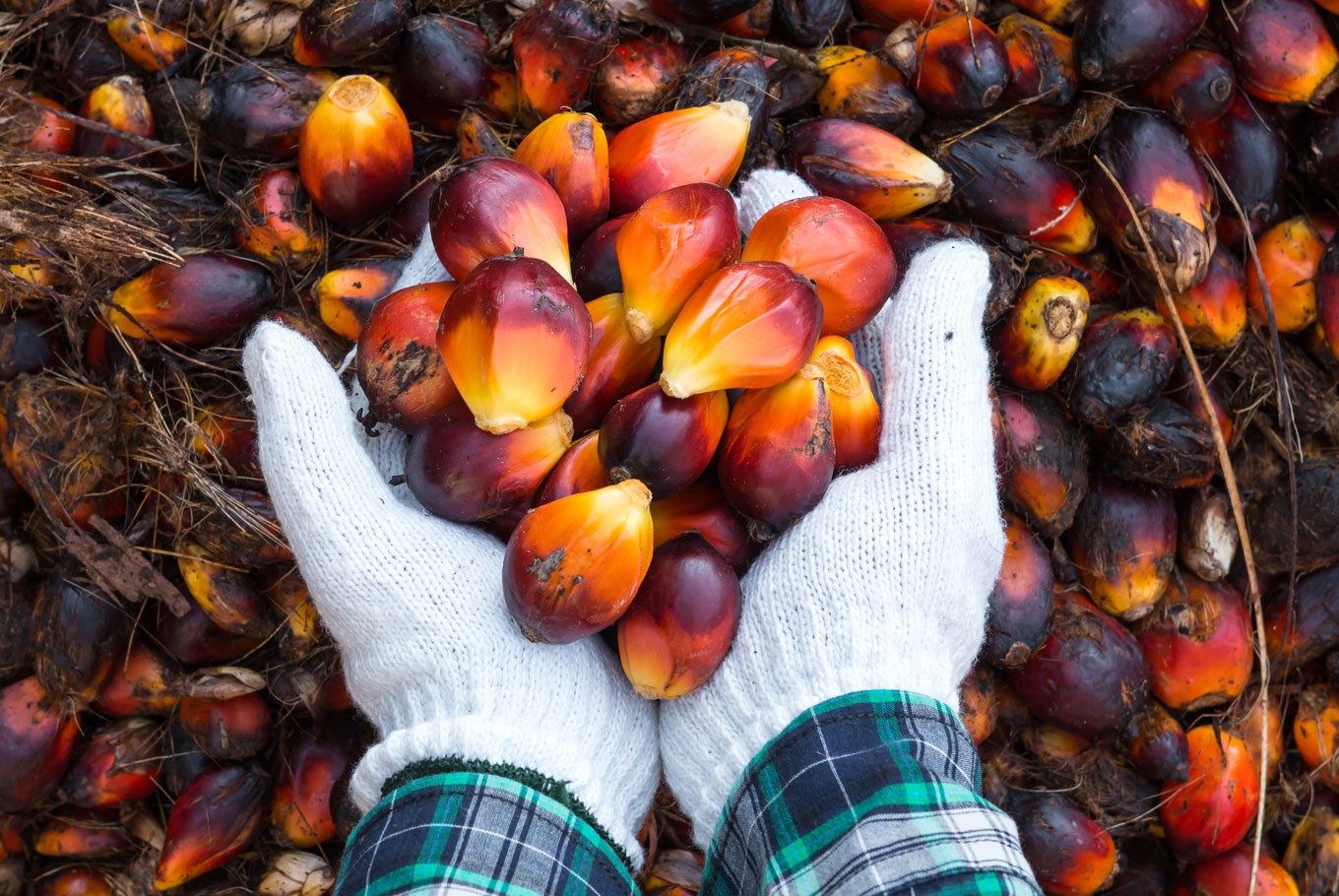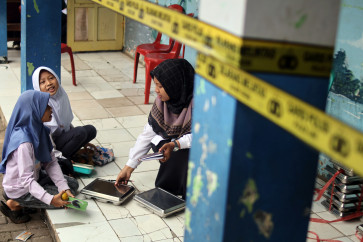Popular Reads
Top Results
Can't find what you're looking for?
View all search resultsPopular Reads
Top Results
Can't find what you're looking for?
View all search resultsOil palm moratorium: The future offered
To have the complete data of all oil palm plantation permits across Indonesia is a good start for the government to implement the moratorium.
Change text size
Gift Premium Articles
to Anyone
A
fter more than two years of waiting, the Indonesian government finally passed the moratorium on oil palm plantation permit policy on Sept. 19. The policy is contained in Presidential Instruction (Inpres) No. 8/2018. But what changes are being offered by the moratorium policy?
This policy is in a sense the government’s response to global criticism over land allocation issues related to oil palm plantations. Since their accelerated expansion in Indonesia in the 1990s, palm oil plantations have frequently been considered the main driver of deforestation and loss of biodiversity.
There are four important agendas in the regulation. First, the government will postpone the issuance of forest release forms during the moratorium’s implementation, which is three years since the Inpres was first issued. This postponement also applies to ongoing forest release applications that have been submitted, but not yet completed or has been identified as being in productive forest areas.
It also applies to ongoing forest release applications that have obtained principle approval, in which the area boundary has not changed and is in productive forest areas.
Second, the government will review all oil palm plantation permits that have been issued. These permits include Izin Lokasi (Location Permit), Izin Usaha Perkebunan (IUP) or Plantation Business Permit, Hak Guna Usaha (HGU) or Cultivation Right, Surat Tanda Daftar Budidaya Perkebunan (STDB) or Registration for Plantation Cultivation and forest release permits.
The permit review will also assess whether the permit holders have fulfilled their obligations, which include the allocation of 20 percent of total plantation to plasma and development of High Conservation Value Forest (HCVF) areas.
Third, the government will follow up all permit reviews with two options — return the land as forest areas and/or enforce the law such as imposing fines for violations.
Fourth, the government will ensure the fulfillment of oil palm fruit supplies to the industry through land productivity improvement efforts, instead of land expansion.
Based on the four main agendas, two important changes are being offered up by the three-year implementation of the moratorium. Firstly, improved land legality. Improving the land legality of national oil palm plantations is one of the key aspects for sustainable palm oil production. The institutional arrangement of land allocation in Indonesia is complex and problematic.
Permit issuance for an oil palm plantation is a formal arrangement that involves various kinds of informalities. Therefore, reviewing the permit documents and assessing them according to situations in the field are helpful in disclosing violations.
To do an effective review, a sufficient resource is needed. This is because the government needs to collect the data of all oil palm plantation permits across Indonesia. Currently, the data is scattered among government agencies at district, provincial and national level. The effort to collect and verify the data will need great resources, thus an effective strategy should be prepared by the government.
To have the complete data of all oil palm plantation permits across Indonesia is a good start for the government to implement the moratorium. The availability of data is a critical enabling condition for any attempts aiming to improving the sustainability of Indonesia’s palm oil production. For instance, without legal plantation data, it is impossible to develop a traceability mechanism for sustainable palm oil. This mechanism ensures that the palm oil is supplied from sustainable sources.
In addition, the successful implementation of the Indonesian Sustainable Palm Oil (ISPO) certification scheme also needs to have complete and accurate data of Indonesia oil palm plantations. Hence, the ISPO should work in parallel with the moratorium to support the provision of data.
Second, improved land productivity. As the moratorium will also focus on improving land productivity for smallholders, this means it will need to work on promoting Good Agricultural Practices (GAPs). The moratorium stipulates that land intensification begins with the strengthening of the smallholder institution. The strengthened institution is expected to be able to implement the government’s strategic program to improve the GAPs, for instance, the replanting support program. The program will supply smallholders with certified palm seeds, fertilizer, pesticide and management, thus improving land productivity.
Here, the provision of complete data on smallholder plantations is also key. Since January, KEHATI has conducted smallholder mapping in 12 villages and found that there are various types of smallholders based on their plantation areas and how they manage them. In these villages, smallholders own a plantation area of 1 to more than 25 hectares and manage their area with additional labor.
According to Agriculture Minister Regulation No. 98/2013, an individual can only manage land for agriculture purposes of no more than 25 ha and register it with STDB. This indicates that some smallholders are at company scale hence they should have improved their capacity in the GAPs by themselves. Availability of data can help the government in preparing an effective replanting support program for real targeted smallholders who own minimal land.
All in all, the moratorium policy offers the Indonesian palm oil industry an opportunity to improve land legality and productivity. This is in line with efforts to achieve sustainable palm oil production in Indonesia. However, the availability of the complete data of oil palm plantations is still a challenge that needs to be resolved first.
***
Wiko Saputra is an economist at AURIGA Nusantara and Ichsan Saif is an environmental policy researcher at Yayasan KEHATI Jakarta.











